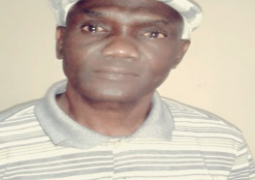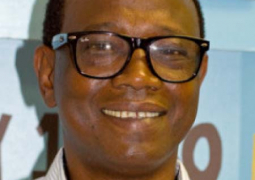
Mr. Minister, it is no coincidence that The Gambia ranked 4th globally for road accidents per world life expectancy in 2021, according to WHO data. This aligns with the Gambia Bureau of Statistics (GBOS) report, which recorded 1,218 road accidents that year. Today, approximately 60 accidents occur monthly, an alarming rate when projected against our population and limited road network.
Minister Sillah, I am sure you recognize how troubling these figures are. While multiple factors contribute to accidents, such as poor road conditions, inadequate signage and markings, lack of pedestrian infrastructure, poor lighting, speeding, driver negligence, driving under the influence, and insufficient driver training. I will focus on three major concerns: poor lighting, lack of traffic lights, and inadequate signage and markings. Historical data underscores the urgency: 970 accidents in 2018, 1,123 in 2019, a record high of 1,218 in 2021, a steep decline to 837 in 2024, and an average of 814 annually from 2013–2017. One could argue that the lower numbers from 2013–2017 resulted from proper signage, markings, lighting, traffic lights, and hefty fines for drivers who damaged streetlights or signals.
Minister Sillah, The Gambia remains among the few countries without functioning traffic lights, a persistent embarrassment. I recall the question from the 𝘽𝙧𝙞𝙩𝙞𝙨𝙝 𝙏𝙑 𝙨𝙝𝙤𝙬 𝙏𝙝𝙚 𝘾𝙝𝙖𝙨𝙚: "Which country has only one traffic light?" The embarrassing answer was "The Gambia," referring to the famous Shell Petrol Station junction, still known by that name today. If the show revisited the question now, it could ask, "Which country has no traffic lights?" The answer would still be "The Gambia."
Mr. Minister, as the Wolof proverb states, "𝘋𝘦𝘬𝘢 𝘣𝘪 𝘭𝘦𝘯𝘥𝘦𝘮 𝘯𝘢 𝘵𝘦 𝘗𝘳𝘦𝘴𝘪𝘥𝘦𝘯𝘵 𝘉𝘢𝘳𝘳𝘰𝘸 𝘣𝘶𝘨𝘶𝘵 𝘭𝘦𝘯𝘥𝘦𝘮," the country is in blackout, and 𝗣𝗿𝗲𝘀𝗶𝗱𝗲𝗻𝘁 𝗕𝗮𝗿𝗿𝗼𝘄 dislikes blackouts. Dilapidated streetlights plague the road network from Banjul, Serekunda, Brikama, and beyond. Consider the pole lying across the 𝗠𝗼𝗯𝗶𝗹𝗲 𝗧𝗿𝗮𝗳𝗳𝗶𝗰 𝗝𝘂𝗻𝗰𝘁𝗶𝗼𝗻, which I assume 𝗞𝗶𝗻𝗴 𝗖𝗼𝗹𝗹𝗲𝘆 overlooked during his road safety tour despite ordering others removed. Such hazards make night time driving risky and contribute significantly to accidents. The lack of road signage and markings is another major factor. For example, the stretch from Westfield to Bwiam has no edge markings, increasing collision risks.
Minister Sillah, 𝘁𝗵𝗲 𝗟𝗼𝗰𝗮𝗹 𝗚𝗼𝘃𝗲𝗿𝗻𝗺𝗲𝗻𝘁 𝗔𝗰𝘁 (𝗦𝗲𝗰𝘁𝗶𝗼𝗻𝘀 𝟳𝟵–𝟴𝟬) mandates councils to establish a Local Road Authority responsible for maintaining secondary roads in their jurisdiction. The Kanifing Municipal Council’s recent proposal to construct secondary roads should not breed animosity between your Ministry and the National Roads Authority (NRA), or be seen as political gain. Rather, it complements government efforts to improve the network beyond national highways and fulfills the councils' Local Road Authority mandate. Projects like these benefit entire communities, regardless of political affiliation.
Mr. Minister, I will not bore you with how to improve road safety, as you outlined key solutions during your Coffee Time appearance with Mr. Peter Gomez. However, here are six urgent, actionable steps:
1) Launch a 𝗗𝟭𝟱𝗠 𝗟𝗘𝗗 𝗖𝗿𝗼𝘄𝗱𝗳𝘂𝗻𝗱𝗶𝗻𝗴 project to install 500 LED streetlights along Kanifing-Brikama (100 km, 5 per km) by June 2026 with slogans "Gambians light their own," "D1 dalasi = 1 safe kilometer," or "Light our roads, save our lives."These would brighten streets, enhance safety, boost the local economy, and improve community livelihoods. For instance, women in Kanifing Estate halted their night time walks to the Post Office junction due to poor lighting. Street vendors have lost income, and residents seeking refuge from NAWEC outages now wander in darkness.
2) Reinstall traffic lights at major intersections.
3) Improve signage and road markings.
4) Enhance road cleaning.
5) Revise the Colonial Motor Traffic Act of 1948 to align with modern traffic laws.
6) Establish an independent Driver's License Center and Department, separate from the The Gambia Police Force .
These steps would resolve short-term issues, save lives, reduce health burdens, boost economic growth, and support sustainable development.
Mr. Minister, I would be remiss if I concluded without giving you your flowers for improving road conditions in Greater Banjul and beyond, especially the 250km Greater Banjul upgrades, Nuimi Hakalang, Central River Region etc. Sa liggéey rafet na! Nice job.
I remain in the service of the nation, for The Gambia ever true.
Dr. Benjamin Kofi Kujabi





